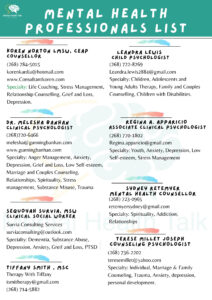It’s a headline we’re all too familiar with in the beautiful twin island state: “Police Seeking Public’s Assistance in Finding Missing Teen.” In the past two months, there have been at least 4 reports of missing teenagers, all of whom were eventually found safe and returned to their homes.
Recently, concerned citizens took to social media to express their frustration with both the actual events and the vagueness of the news updates. Some worry that this may be a “cry wolf” situation as gender-based violence is at an all-time high in Antigua and the Caribbean.
But why are our teens going missing so frequently? And what can we as a nation do to help lessen these occurrences?
Reasons Why Teenagers Run Away?

There are several reasons why teenagers resort to running away from home, the most common being:
• Lack of family bond or home crisis
• Substance abuse
• Being subjected to abuse (emotional, physical and sexual abuse)
• Trouble at school (Bullying or unresolved harassment)
• Personal Crisis: Struggles surrounding sexual orientation, pregnancy,
Adolescence can be described as one of the most challenging times of one’s life. Transitioning from childhood to adulthood means having to mature physically and emotionally, while discovering one’s self and developing new and more socially acceptable models of behavior.
In the Caribbean, this stage proves to be even more difficult, especially for those with little to no support and the immense stigma surrounding mental health issues. In moments of despair, teenagers tend to impulsively choose to escape, and more than often find themselves seeking refuge and comfort in all the wrong places.
There are two main types of Runaways
• Episodic Runaway- This is when a child runs away for a short period of time and then returns home or is found. This is usually impulsive as the teenager is unable to use problem solving skills to resolve conflict.
• Chronic Runaway– The teen may desperately desire to gain superiority or independence. This is usually caused by re-occurring issues at home. They may threaten to run away or spontaneously do it regardless of consequences. In the Caribbean, statistics show that females are more likely to be Chronic Runaways.
What can we do?
It’s an obvious fact that more needs to be done about mental health and wellness in Antigua. There also needs to be greater focus on support for financially challenged families. But what can we as citizens and parents do?
• Listen to children– No matter their age, children always deserve a listening ear, but the teenage years are especially sensitive due to hormonal changes and having to live up to more expectations. If a teenager explains discomfort about a situation, it is only fair that you as the adult listen to them and provide them with the insight and comfort that they require.
• Encourage professional help– Some teenagers cannot simply confide in family members; some may be struggling with death of a parent or parental separation and feel like no one around can understand them. Some may be unknowingly dealing with depression or anxiety. It is a wise decision to encourage and assist them in finding professional assistance to better manage their emotions. Mental Health Talk Antigua is an organization that provides resources for those needing mental health treatment in Antigua and Barbuda. You can
find them on Facebook.
• Don’t turn them away– Never shun away a teenager or dismiss their worries and frustrations as insignificant. They deserve every bit of attention and care that they require. Doing this may cause them to seek what they need from the wrong places.
Here are some signs that may indicate a teenager may be contemplating running away:
1. Abrupt changes in mood and behavior. Seeming more irritable than normal or being visibly depressed.
2. Sudden drop in school performance
3. Isolating from friends and family
4. Suddenly rebelling, breaking school and house rules
5. Self-harming
6. Speaking about running away
7. For girls: becoming sexually active and spending time with male friends without permission. They may also be bringing home expensive gifts or money.
Takeaway
There’s a saying that goes “Prevention is better than cure.” And in all aspects of life, we must continue to use this proverb for guidance. Running away is an extremely dangerous act no matter the gender or age of a child, but if we as adults provide safe spaces in moments of crisis, we can help lower the numbers of runaway teenagers in Antigua and Barbuda.






